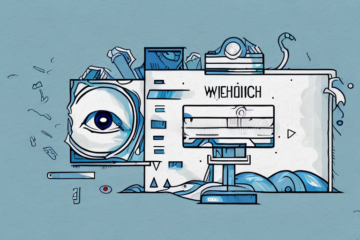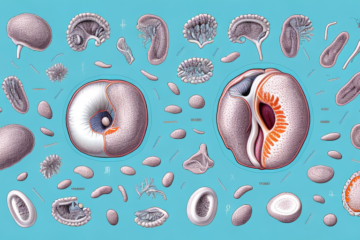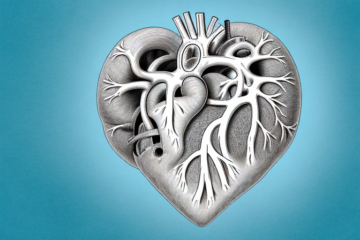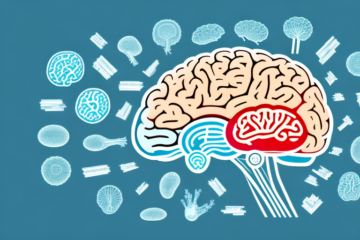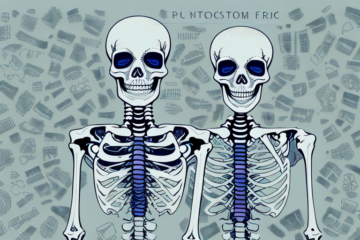Hypocalcemia is a common medical condition that occurs when the level of calcium in your blood drops below the normal range. Calcium is an essential mineral that plays a critical role in the functioning of our body. It helps our muscles contract, our nerves to communicate, and promotes the growth and development of our bones. When your calcium levels are low, it can lead to a wide range of symptoms and complications. In this article, we will discuss the causes, symptoms, diagnosis, treatment, and prevention of hypocalcemia in detail.
What is Hypocalcemia?
Hypocalcemia is a medical condition characterized by low levels of calcium in the blood. The normal calcium level in adults is around 8.5 – 10.5 mg/dL. Anything below this level is considered hypocalcemia. This condition can occur due to several reasons, such as poor dietary intake, impaired absorption, or excessive loss of calcium from the kidneys. It can also be caused by certain medical conditions or medications that interfere with calcium metabolism in the body.
Symptoms of hypocalcemia can vary depending on the severity of the condition. Mild cases may not show any symptoms, while severe cases can lead to muscle cramps, spasms, and even seizures. In some cases, hypocalcemia can also cause numbness and tingling in the fingers, toes, and lips. Treatment for hypocalcemia typically involves calcium and vitamin D supplements, as well as addressing the underlying cause of the condition.
Understanding Calcium Levels in the Body
Calcium is an essential mineral that is required for various functions in the body. Our body gets its calcium from the food we eat, which is then absorbed by the intestines and distributed to the different organs and tissues via the blood. The kidneys play a crucial role in regulating calcium levels in the blood by excreting or conserving the mineral based on the body’s needs. The parathyroid hormone (PTH) also regulates calcium levels by stimulating the release of calcium from the bones into the blood when levels are low.
It is important to maintain adequate levels of calcium in the body as it is necessary for strong bones and teeth, muscle function, nerve transmission, and blood clotting. Low levels of calcium can lead to osteoporosis, a condition where bones become weak and brittle, and increase the risk of fractures. High levels of calcium, on the other hand, can cause kidney stones, constipation, and interfere with the absorption of other minerals such as iron and zinc. Therefore, it is recommended to consume a balanced diet that includes calcium-rich foods such as dairy products, leafy greens, and fortified cereals, and to consult a healthcare professional if you have concerns about your calcium levels.
The Role of Calcium in the Body
Calcium is essential for many physiological processes in the body, including nerve function, muscle contraction, blood clotting, and bone health. It also plays a vital role in regulating heart rate and blood pressure. The bones act as a storage site for calcium, which can be taken up from the blood, or released into the blood depending on the body’s needs. Calcium is also required for the absorption and metabolism of other minerals such as magnesium, phosphorous, and vitamin D.
In addition to its physiological functions, calcium intake has been linked to a reduced risk of osteoporosis, a condition characterized by weak and brittle bones. Adequate calcium intake during childhood and adolescence is particularly important for achieving peak bone mass, which can help prevent osteoporosis later in life. However, it is important to note that excessive calcium intake can lead to health problems such as kidney stones and cardiovascular disease. Therefore, it is recommended to consume calcium in moderation and through a balanced diet that includes sources such as dairy products, leafy greens, and fortified foods.
Causes of Hypocalcemia: A Comprehensive Guide
Several factors can cause hypocalcemia, some of which include vitamin D deficiency, chronic kidney disease, low parathyroid hormone levels, malabsorption syndromes, and certain medications such as diuretics, anticonvulsants, and bisphosphonates. Other causes of hypocalcemia include pancreatitis, hypoparathyroidism, alcoholism, and hormonal imbalances, such as seen in menopause or during pregnancy and lactation.
One of the less common causes of hypocalcemia is a genetic disorder called familial hypocalciuric hypercalcemia (FHH). This condition is characterized by high levels of calcium in the blood, but the body is unable to properly regulate it, leading to low levels of calcium in the urine and ultimately causing hypocalcemia. FHH is usually asymptomatic and is often discovered incidentally during routine blood tests.
In rare cases, hypocalcemia can also be caused by an autoimmune disorder called autoimmune polyendocrine syndrome type 1 (APS-1). This condition affects multiple endocrine glands, including the parathyroid gland, leading to low levels of calcium in the blood. APS-1 is usually diagnosed in childhood and can cause a range of symptoms, including hypoparathyroidism, adrenal insufficiency, and chronic mucocutaneous candidiasis.
Signs and Symptoms of Hypocalcemia to Watch Out For
The symptoms of hypocalcemia can range from mild to severe, depending on the underlying cause and the level of calcium deficiency. Some of the most common symptoms of hypocalcemia include muscle cramps, weakness, tingling or numbness in the fingers and toes, poor appetite, fatigue, and headaches. More severe symptoms can include seizures, irregular heartbeat, and even coma in extreme cases.
It is important to note that hypocalcemia can be caused by a variety of factors, including vitamin D deficiency, kidney disease, and certain medications. In addition to the symptoms mentioned above, individuals with hypocalcemia may also experience dry skin, brittle nails, and dental problems. If you suspect that you may have hypocalcemia, it is important to speak with your healthcare provider to determine the underlying cause and receive appropriate treatment.
How is Hypocalcemia Diagnosed?
Hypocalcemia is typically diagnosed by a blood test that measures the level of calcium in the blood. Other tests, such as a vitamin D level test, thyroid function tests, and kidney function tests, may also be ordered to determine the underlying cause of the hypocalcemia. In certain cases, your healthcare provider may also order an electrocardiogram (ECG) to check for any irregularities in heart rhythm that may be associated with hypocalcemia.
In addition to these tests, your healthcare provider may also perform a physical exam to check for any signs or symptoms of hypocalcemia, such as muscle cramps, numbness or tingling in the fingers or toes, or seizures. They may also ask about your medical history and any medications you are currently taking, as certain medications can cause hypocalcemia as a side effect.
If hypocalcemia is suspected, your healthcare provider may also recommend imaging tests, such as X-rays or bone density scans, to check for any abnormalities in the bones that may be contributing to the low calcium levels. In some cases, a biopsy of the parathyroid gland may also be necessary to determine if there is an underlying issue with the gland that is causing the hypocalcemia.
Medical Conditions that can Lead to Hypocalcemia
Several medical conditions can lead to hypocalcemia, such as chronic kidney disease, hypoparathyroidism, vitamin D deficiency, and pancreatic insufficiency. Certain gastrointestinal disorders, such as Crohn’s disease, celiac disease, and ulcerative colitis, can also interfere with calcium absorption and lead to hypocalcemia.
Another medical condition that can lead to hypocalcemia is hyperphosphatemia, which is a condition characterized by high levels of phosphorus in the blood. This can occur in people with chronic kidney disease or those undergoing dialysis.
In addition, certain medications can also cause hypocalcemia as a side effect. These include diuretics, anticonvulsants, and some chemotherapy drugs. It is important to talk to your doctor about any medications you are taking and their potential side effects.
Hypocalcemia in Infants and Children: Causes and Treatment
Hypocalcemia can also occur in infants and children, and it can be caused by several factors such as prematurity, neonatal hypoparathyroidism, and maternal hypoparathyroidism. Children may also experience hypocalcemia due to genetic disorders or severe infections. Treatments for hypocalcemia in children include medications such as vitamin D and calcium supplements, as well as lifestyle changes like a calcium-rich diet.
It is important to monitor and treat hypocalcemia in infants and children promptly, as it can lead to serious complications such as seizures, developmental delays, and even death. In some cases, hospitalization may be necessary to manage the condition and provide intravenous calcium supplementation. Parents and caregivers should be aware of the signs and symptoms of hypocalcemia in children, which may include muscle cramps, twitching, numbness, and tingling in the hands and feet. If these symptoms are present, it is important to seek medical attention immediately.
Treatment Options for Hypocalcemia: Medications and Lifestyle Changes
The treatment for hypocalcemia depends on the underlying cause and the severity of the condition. Mild cases of hypocalcemia can often be treated with calcium and vitamin D supplements, whereas more severe cases may require intravenous calcium administration. In certain cases, surgery may be required to address underlying conditions such as hypoparathyroidism. Lifestyle changes such as incorporating calcium-rich foods in your diet and avoiding certain medications can also help prevent hypocalcemia.
Another treatment option for hypocalcemia is the use of medications such as calcitriol, which is a form of vitamin D that helps the body absorb calcium. Other medications such as calcium channel blockers and diuretics may also be used to treat hypocalcemia caused by certain medical conditions.
It is important to note that hypocalcemia can have serious complications if left untreated, such as seizures, heart rhythm abnormalities, and even death. Therefore, it is crucial to seek medical attention if you experience symptoms of hypocalcemia such as muscle cramps, tingling in the fingers and toes, and seizures.
Preventing Hypocalcemia: Diet and Lifestyle Tips
Preventing hypocalcemia can involve a combination of dietary changes and lifestyle modifications. It is important to consume foods that contain adequate amounts of calcium, such as dairy products, leafy greens, and fish. Vitamin D supplementation can also be beneficial for promoting calcium absorption from the intestines. Other lifestyle changes that can help prevent hypocalcemia include staying physically active, limiting alcohol consumption, and avoiding medications that can interfere with calcium metabolism.
In addition to these dietary and lifestyle changes, it is important to monitor your calcium levels regularly, especially if you have a medical condition that puts you at risk for hypocalcemia. This can be done through blood tests and bone density scans. If you are diagnosed with hypocalcemia, your healthcare provider may recommend calcium and vitamin D supplements to help raise your levels. It is important to follow their recommendations and attend regular follow-up appointments to ensure that your levels are stable.
Complications Associated with Chronic Hypocalcemia
Chronic hypocalcemia can lead to several complications such as osteoporosis, seizures, and cardiac arrhythmias. Prolonged hypocalcemia can also lead to cognitive impairment and developmental delays in children. Early detection and treatment of hypocalcemia can help prevent these complications.
In addition to the aforementioned complications, chronic hypocalcemia can also lead to muscle cramps, spasms, and weakness. This is because calcium plays a crucial role in muscle contraction and relaxation. Hypocalcemia can also cause numbness and tingling in the fingers, toes, and around the mouth.
Furthermore, chronic hypocalcemia can increase the risk of developing kidney stones. This is because low levels of calcium in the blood can lead to an increase in oxalate levels, which can then combine with calcium to form kidney stones. It is important to maintain adequate levels of calcium in the blood to prevent the formation of kidney stones.
When to Seek Medical Attention for Hypocalcemia
It is crucial to seek medical attention if you experience any symptoms of hypocalcemia, such as muscle cramps, tingling, or seizures. Prompt treatment of hypocalcemia can prevent serious complications and improve your quality of life.
In addition to seeking medical attention for symptoms of hypocalcemia, it is important to regularly monitor your calcium levels if you have a history of hypocalcemia or other calcium-related disorders. Your doctor may recommend regular blood tests to check your calcium levels and adjust your treatment plan accordingly. It is also important to maintain a healthy diet rich in calcium and vitamin D to prevent hypocalcemia from occurring in the first place.
Living with Hypocalcemia: Coping Strategies and Support Resources
Hypocalcemia can have a significant impact on your physical and mental health. Coping strategies such as seeking support from family and friends, staying active, and maintaining a positive outlook can help you manage your condition effectively. There are also several support groups and organizations that provide information and resources to help individuals with hypocalcemia.
It is important to work closely with your healthcare provider to develop a treatment plan that is tailored to your specific needs. This may include taking calcium and vitamin D supplements, making dietary changes, and monitoring your calcium levels regularly. Additionally, it is important to educate yourself about the condition and its potential complications, such as osteoporosis and seizures, in order to take proactive steps to prevent them.
Conclusion: Understanding the Importance of Calcium in Your Health
Calcium is an essential mineral required for various physiological processes in the body. Hypocalcemia is a common medical condition that can occur due to several factors and can lead to several complications if left untreated. Understanding the causes, symptoms, and treatment options for hypocalcemia, as well as adopting a healthy lifestyle, can help prevent this condition and improve your overall health and well-being.
In addition to its role in maintaining strong bones and teeth, calcium also plays a crucial role in muscle function, nerve transmission, and blood clotting. It is important to consume enough calcium-rich foods, such as dairy products, leafy greens, and fortified foods, to ensure proper bodily function. However, it is also important to note that excessive calcium intake can lead to health problems, such as kidney stones and cardiovascular disease. Therefore, it is recommended to consume calcium in moderation and to consult with a healthcare professional to determine the appropriate amount for your individual needs.



